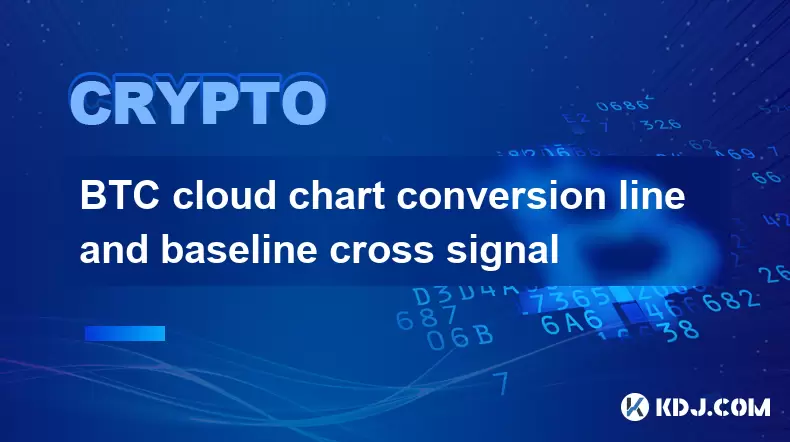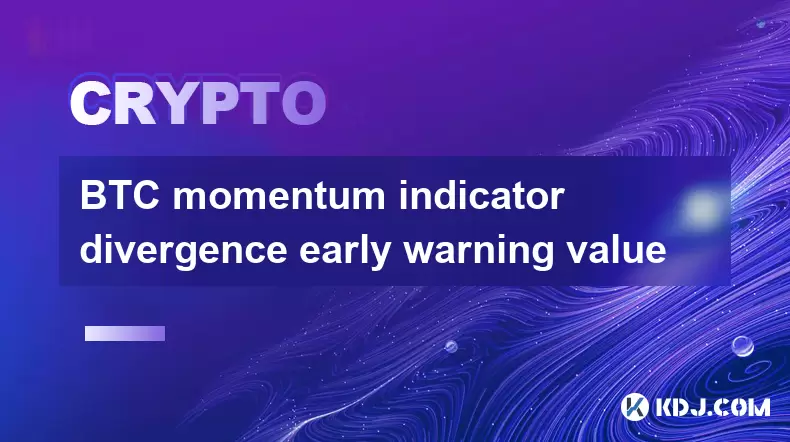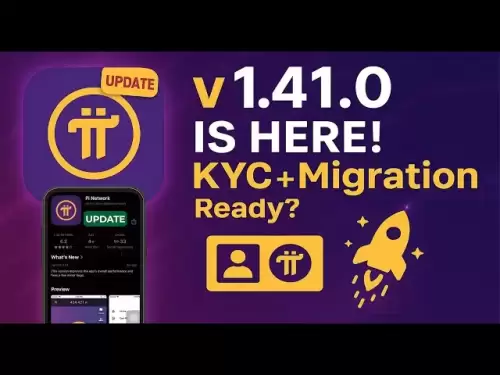-
 Bitcoin
Bitcoin $106,957.1091
-1.94% -
 Ethereum
Ethereum $2,723.6537
-1.49% -
 Tether USDt
Tether USDt $1.0000
0.00% -
 XRP
XRP $2.2251
-3.63% -
 BNB
BNB $661.9038
-0.66% -
 Solana
Solana $157.9386
-3.64% -
 USDC
USDC $0.9996
-0.01% -
 Dogecoin
Dogecoin $0.1873
-5.74% -
 TRON
TRON $0.2714
-6.79% -
 Cardano
Cardano $0.6778
-4.93% -
 Hyperliquid
Hyperliquid $40.5108
-1.74% -
 Sui
Sui $3.2555
-5.65% -
 Chainlink
Chainlink $14.1277
-6.69% -
 Avalanche
Avalanche $20.8372
-5.05% -
 Stellar
Stellar $0.2733
-2.52% -
 Bitcoin Cash
Bitcoin Cash $427.3769
-3.45% -
 UNUS SED LEO
UNUS SED LEO $8.8732
-1.25% -
 Toncoin
Toncoin $3.1618
-1.92% -
 Shiba Inu
Shiba Inu $0.0...01256
-4.56% -
 Hedera
Hedera $0.1667
-6.79% -
 Litecoin
Litecoin $88.3449
-2.97% -
 Polkadot
Polkadot $4.0213
-4.76% -
 Monero
Monero $322.4480
-3.10% -
 Ethena USDe
Ethena USDe $1.0005
0.00% -
 Bitget Token
Bitget Token $4.6890
-3.41% -
 Dai
Dai $0.9998
0.00% -
 Pepe
Pepe $0.0...01216
-4.28% -
 Uniswap
Uniswap $7.7968
-4.75% -
 Pi
Pi $0.6264
-1.41% -
 Aave
Aave $292.6275
-5.31%
The probability of achieving the target position after BTC's rectangular consolidation breakthrough
BTC's rectangular consolidation suggests a potential breakout, with a projected target of $70,000 if bullish momentum and volume confirm the move.
Jun 11, 2025 at 02:42 am

Understanding BTC's Rectangular Consolidation Pattern
A rectangular consolidation pattern in the context of Bitcoin (BTC) price movement refers to a period where the price trades within a defined horizontal range, bounded by support and resistance levels. This phase typically reflects market indecision, with neither bulls nor bears gaining control. During this consolidation phase, volume often decreases as traders wait for a decisive breakout.
In technical analysis, rectangles are considered continuation patterns. When BTC is in an uptrend and enters a rectangular consolidation phase, it suggests that the prior trend may resume once a breakout occurs. The key aspect here lies in identifying the direction and strength of the breakout, which determines whether the price will move toward the projected target or reverse.
Important: The success of any projection following a rectangular consolidation depends heavily on volume confirmation at the time of the breakout.
Measuring the Potential Target After Breakout
One of the most widely used methods to estimate the target price after a breakout from a rectangular consolidation is the "measured move" technique. To apply this:
- Identify the height of the rectangle by subtracting the support level from the resistance level.
- Once a breakout occurs, project this height either upward (in case of an upside breakout) or downward (for a downside breakout).
For example, if BTC consolidates between $60,000 and $65,000, the height is $5,000. If it breaks out to the upside, the projected target becomes $70,000. Similarly, a downside break would suggest a target near $55,000.
Important: These projections serve as guidelines rather than guarantees. Other factors such as macroeconomic news, exchange inflows/outflows, and volatility can alter expected targets.
Historical Performance of BTC Breakouts From Rectangles
Looking back at BTC's historical chart data reveals several instances where the price broke out of a rectangular consolidation and continued in the direction of the previous trend. For instance, during late 2020 and early 2021, Bitcoin experienced multiple consolidation phases before resuming its bullish run.
In these cases, the measured move strategy worked with reasonable accuracy. However, there were also false breakouts — especially during low-volume periods — that led to sharp reversals shortly after the initial breakout.
Important: Traders should use additional tools like moving averages, RSI, or MACD to confirm the validity of the breakout before placing trades based solely on pattern recognition.
Probability Analysis Based on Technical Indicators
To assess the probability of reaching the target post-breakout, traders often combine candlestick patterns and volume indicators:
- A strong bullish candle closing above the resistance with increased volume increases the likelihood of the target being reached.
- Conversely, a weak breakout candle with little volume raises concerns about the sustainability of the move.
Additionally, Fibonacci extensions can be overlaid on the consolidation area to identify potential confluence zones that align with the projected target. If the measured move coincides with a key Fibonacci level (e.g., 161.8%), the probability of the price reaching that level increases.
Important: Combining multiple analytical techniques improves the reliability of the projection but does not eliminate risk entirely.
Practical Steps for Traders Monitoring BTC’s Rectangle Breakout
If you're monitoring BTC for a potential breakout from a rectangular consolidation zone, follow these steps carefully:
- Mark the upper and lower boundaries of the consolidation clearly on your chart.
- Calculate the height of the rectangle to determine the projected target.
- Set up alerts for when the price moves beyond these boundaries with significant volume.
- Use limit orders slightly beyond the breakout point to enter the trade efficiently.
- Place a stop-loss order just below the consolidation zone in case of a false breakout.
- Monitor for bearish divergence or sudden drops in volume after the breakout as warning signs.
Important: Avoid entering trades immediately upon seeing a breakout candle. Wait for confirmation through the next few candles to avoid falling into a trap set by market makers.
Frequently Asked Questions
What happens if BTC breaks down from a rectangle instead of breaking out?
A breakdown implies weakness in the market and often leads to a move equal to the height of the rectangle projected downward. For example, if the consolidation spanned $5,000 and BTC breaks below the support, the likely next move could be $5,000 lower from the breakdown point.
Can BTC consolidate in a rectangle multiple times consecutively?
Yes, especially in sideways markets or during accumulation/distribution phases. Each new rectangle forms its own measurable target, and traders should treat each one independently unless they overlap significantly.
How reliable is the measured move technique for BTC?
The measured move works well in trending markets with strong volume. In ranging or choppy conditions, it may give misleading signals. Always cross-check with momentum indicators like RSI or MACD.
Is there a minimum time requirement for a consolidation to be considered a valid rectangle?
There's no fixed rule, but generally, consolidations lasting more than 7–10 days offer more reliable breakouts. Shorter consolidations tend to produce weaker moves and higher chances of failure.
Disclaimer:info@kdj.com
The information provided is not trading advice. kdj.com does not assume any responsibility for any investments made based on the information provided in this article. Cryptocurrencies are highly volatile and it is highly recommended that you invest with caution after thorough research!
If you believe that the content used on this website infringes your copyright, please contact us immediately (info@kdj.com) and we will delete it promptly.
- Japanese Fashion Company ANAP Buys 50.5 Bitcoin, Plans to Acquire 950 More
- 2025-06-12 20:50:13
- Platinum and palladium price forecasts by Metals Focus: Platinum to average $970/oz in 2025, up 1% from 2024
- 2025-06-12 20:50:13
- Pakistan Plans to Redirect 2,000 MW of Idle Electricity to Bitcoin Mining to Ease $7.4B in Annual Energy Losses.
- 2025-06-12 20:45:13
- Shardeum's Technical and Tokenomics Whitepaper Receives MiCA Approval
- 2025-06-12 20:45:13
- Atomic Wallet Review: The Best Cryptocurrency Wallet for Everyday Use?
- 2025-06-12 20:42:00
- Polymath Expands Its Mission to Tokenize the Global Financial System with the Launch of a Free Onboarding Webinar
- 2025-06-12 20:35:12
Related knowledge

Bitcoin Super Simplified Science Popularization No need to worry about not understanding
Jun 12,2025 at 04:02am
What Is Bitcoin in the Simplest Terms?Bitcoin is a decentralized digital currency, which means it allows people to send and receive money directly over the internet without needing banks or governments. It was created in 2009 by an anonymous person or group using the pseudonym Satoshi Nakamoto. The core idea behind Bitcoin is to give individuals full co...

What is Bitcoin? Learn Bitcoin in three minutes
Jun 12,2025 at 02:57am
What Is Bitcoin?Bitcoin is a decentralized digital currency, also known as a cryptocurrency, that enables peer-to-peer transactions without the need for intermediaries like banks or governments. It was introduced in 2009 by an anonymous individual or group using the pseudonym Satoshi Nakamoto. The core idea behind Bitcoin is to offer a form of money tha...

BTC OBV energy tide and price divergence correlation
Jun 10,2025 at 11:57am
Understanding BTC OBV Energy TideBTC OBV (On-Balance Volume) Energy Tide is a term used to describe the combination of On-Balance Volume analysis and energy tide indicators in the Bitcoin market. OBV is a technical indicator that uses volume flow to predict changes in stock or cryptocurrency prices. It adds volume on up days and subtracts volume on down...

BTC cloud chart conversion line and baseline cross signal
Jun 10,2025 at 03:14am
Understanding BTC Cloud Chart: Ichimoku Kinkō Hyū BasicsThe BTC cloud chart, also known as the Ichimoku Kinkō Hyū, is a powerful technical analysis tool used by cryptocurrency traders to evaluate price trends, momentum, and potential reversal points. Unlike traditional candlestick charts, the Ichimoku system incorporates multiple lines and a 'cloud' (Ku...

BTC alligator line in the trend of filtering effect
Jun 09,2025 at 06:50pm
Understanding the BTC Alligator Line in Cryptocurrency TradingIn the world of BTC trading, technical analysis plays a crucial role in identifying potential price movements. One such tool that has gained popularity among traders is the Alligator Line, a concept introduced by Bill Williams. The Alligator Line is not just an indicator but a system designed...

BTC momentum indicator divergence early warning value
Jun 09,2025 at 06:00pm
Understanding BTC Momentum Indicator DivergenceIn the realm of cryptocurrency trading, BTC momentum indicator divergence is a crucial concept for traders aiming to detect potential reversals in price trends. The momentum indicator measures the rate of change in Bitcoin’s price over a specified period, typically 10 or 14 days. When this indicator diverge...

Bitcoin Super Simplified Science Popularization No need to worry about not understanding
Jun 12,2025 at 04:02am
What Is Bitcoin in the Simplest Terms?Bitcoin is a decentralized digital currency, which means it allows people to send and receive money directly over the internet without needing banks or governments. It was created in 2009 by an anonymous person or group using the pseudonym Satoshi Nakamoto. The core idea behind Bitcoin is to give individuals full co...

What is Bitcoin? Learn Bitcoin in three minutes
Jun 12,2025 at 02:57am
What Is Bitcoin?Bitcoin is a decentralized digital currency, also known as a cryptocurrency, that enables peer-to-peer transactions without the need for intermediaries like banks or governments. It was introduced in 2009 by an anonymous individual or group using the pseudonym Satoshi Nakamoto. The core idea behind Bitcoin is to offer a form of money tha...

BTC OBV energy tide and price divergence correlation
Jun 10,2025 at 11:57am
Understanding BTC OBV Energy TideBTC OBV (On-Balance Volume) Energy Tide is a term used to describe the combination of On-Balance Volume analysis and energy tide indicators in the Bitcoin market. OBV is a technical indicator that uses volume flow to predict changes in stock or cryptocurrency prices. It adds volume on up days and subtracts volume on down...

BTC cloud chart conversion line and baseline cross signal
Jun 10,2025 at 03:14am
Understanding BTC Cloud Chart: Ichimoku Kinkō Hyū BasicsThe BTC cloud chart, also known as the Ichimoku Kinkō Hyū, is a powerful technical analysis tool used by cryptocurrency traders to evaluate price trends, momentum, and potential reversal points. Unlike traditional candlestick charts, the Ichimoku system incorporates multiple lines and a 'cloud' (Ku...

BTC alligator line in the trend of filtering effect
Jun 09,2025 at 06:50pm
Understanding the BTC Alligator Line in Cryptocurrency TradingIn the world of BTC trading, technical analysis plays a crucial role in identifying potential price movements. One such tool that has gained popularity among traders is the Alligator Line, a concept introduced by Bill Williams. The Alligator Line is not just an indicator but a system designed...

BTC momentum indicator divergence early warning value
Jun 09,2025 at 06:00pm
Understanding BTC Momentum Indicator DivergenceIn the realm of cryptocurrency trading, BTC momentum indicator divergence is a crucial concept for traders aiming to detect potential reversals in price trends. The momentum indicator measures the rate of change in Bitcoin’s price over a specified period, typically 10 or 14 days. When this indicator diverge...
See all articles

























































































